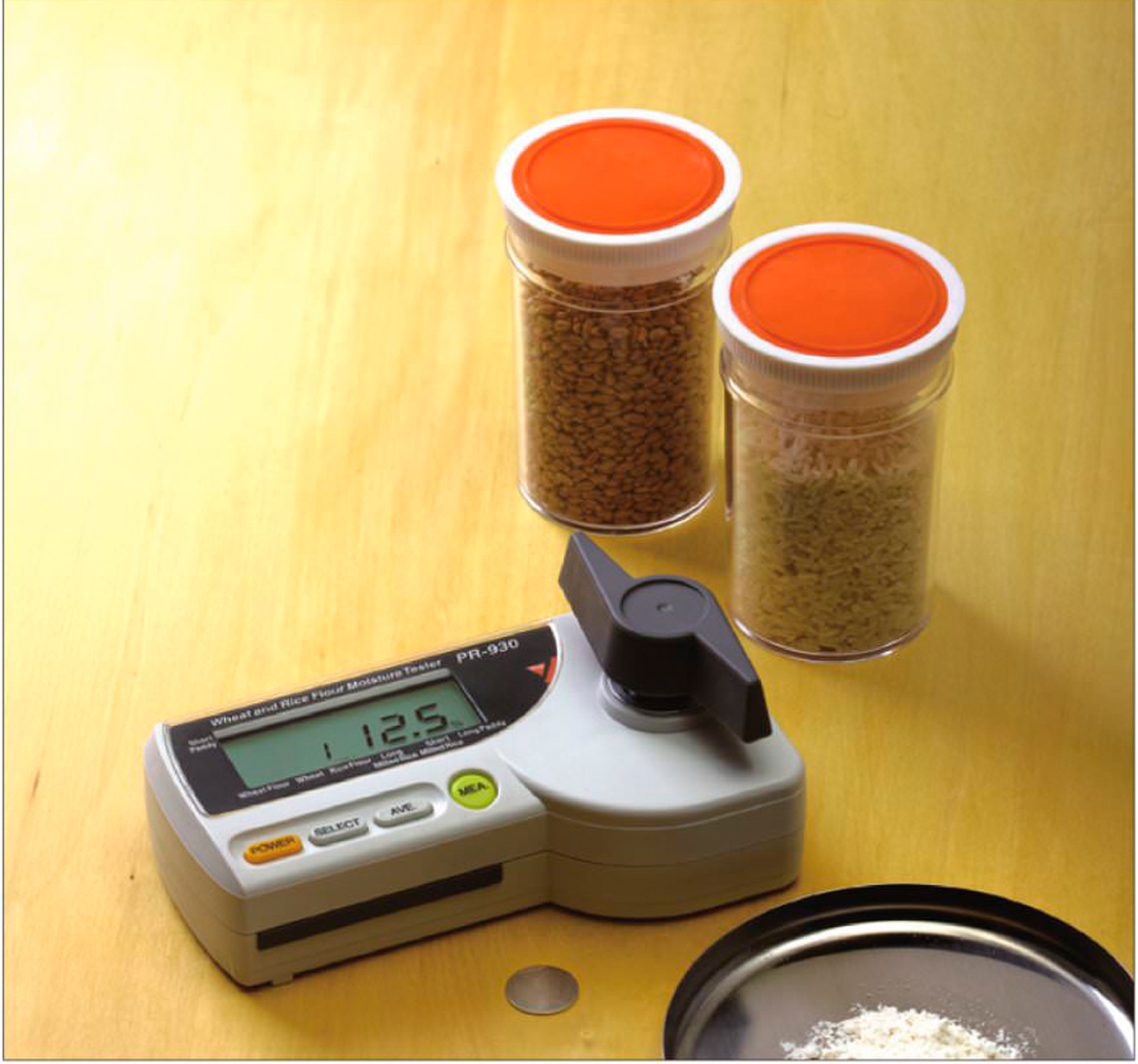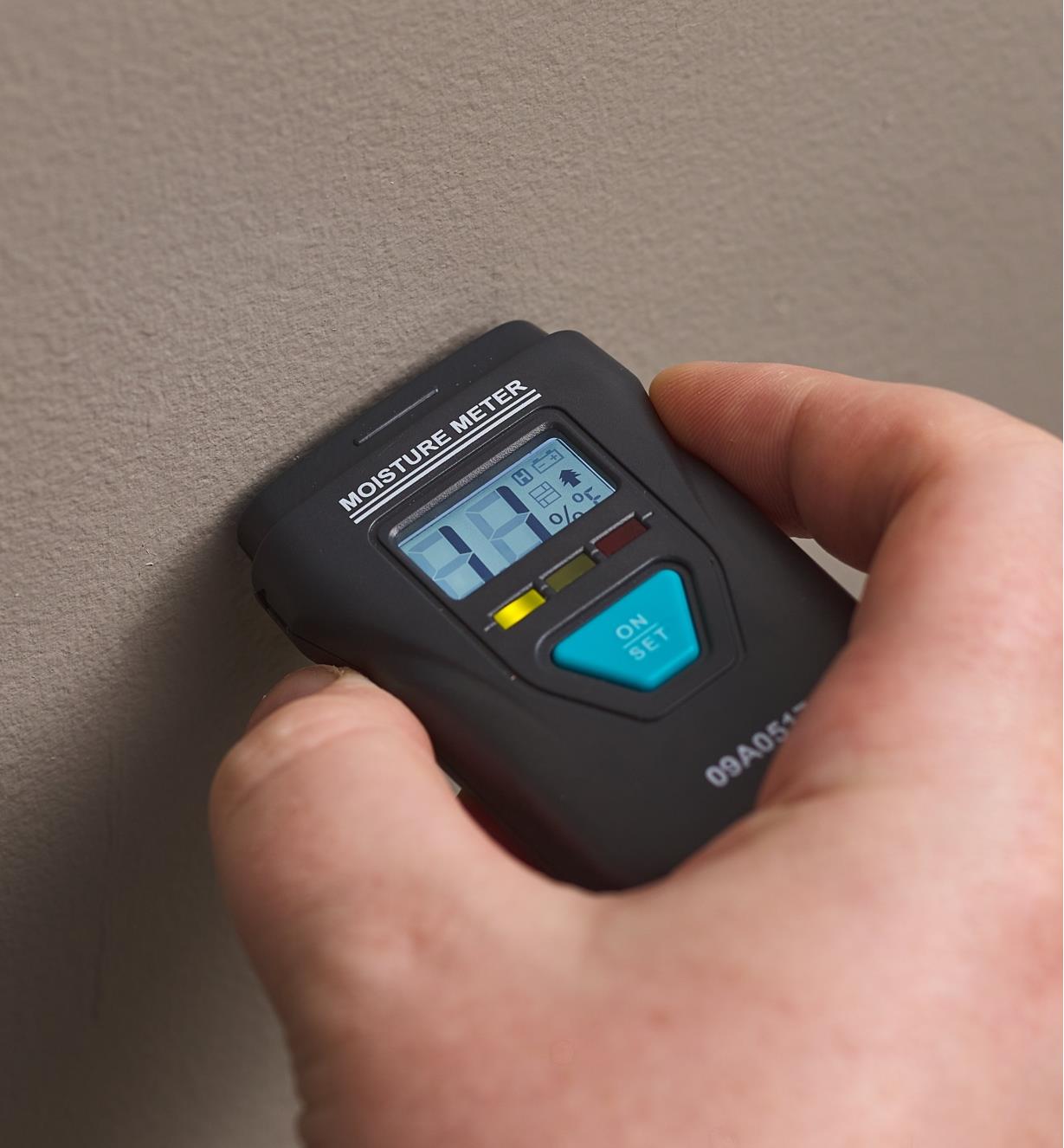Understanding the Various Types of Moisture Meters and Their Applications
Understanding the Various Types of Moisture Meters and Their Applications
Blog Article
The Ultimate Overview to Wetness Meters: A Comprehensive Introduction and How They Can Conserve You Money
In the world of building maintenance, building and construction, and various industries, the importance of precisely measuring wetness degrees can not be overstated. Wetness meters serve as essential devices in finding and monitoring moisture content in products, helping in preventing pricey damages and ensuring the quality of items. Recognizing the nuances of various sorts of dampness meters, their applications, and the potential cost-saving benefits they offer can be a game-changer for services and specialists alike. Uncovering just how these devices can not only simplify procedures but likewise add to economic cost savings is a trip worth starting.
Kinds of Wetness Meters
Various sorts of moisture meters are readily available for various applications in different sectors. One common kind is the pin-type wetness meter, which measures the electrical resistance in between two pins inserted right into a material. This type is appropriate for timber, drywall, and various other structure products. Pinless dampness meters, on the various other hand, usage electro-magnetic sensing unit plates to check a larger location without creating damage to the product's surface area. Moisture Meter. These meters are optimal for rapidly evaluating moisture levels in large locations such as floorings and walls.

Additionally, there are additionally specialty dampness meters designed for certain materials like hay, soil, or grain. These meters give precise dampness readings customized to the one-of-a-kind properties of the product being examined. Infrared moisture meters gauge the thermal residential properties of a product to identify its wetness material non-invasively, making them valuable for applications where pin or pinless meters might not appropriate. Comprehending the different sorts of wetness meters readily available can help industries choose one of the most ideal tool for their particular dampness dimension needs.

Advantages of Making Use Of Dampness Meters
Dampness meters use very useful advantages in accurately keeping an eye on and evaluating dampness degrees in varied materials and atmospheres (Moisture Meter). Among the primary advantages of making use of dampness meters is the prevention of potential damages created by excess moisture. By identifying and resolving high moisture degrees beforehand, wetness meters help to avoid mold and mildew development, rot, and architectural damage in buildings, conserving both money and time on repairs. In addition, wetness meters help in making sure the top quality of materials during building or production processes. By properly measuring moisture content, these devices aid keep the integrity of wood, drywall, concrete, and various other products, decreasing the risk of defects or failings.
In addition, making use of moisture meters can lead to enhanced energy performance. By identifying areas with high moisture levels, such as leaks or poor insulation, adjustments can be made to improve energy preservation and reduce utility expenses. In agricultural settings, dampness meters play an essential role in enhancing plant returns by enabling farmers to keep track of soil moisture degrees and make educated watering choices. Generally, the advantages of using moisture meters cover throughout numerous markets, providing economical remedies and promoting far better quality assurance practices.
How to Select the Right Wetness Meter
Choosing the proper dampness meter includes taking into consideration crucial elements such as material compatibility, dimension variety, and calibration precision. When choosing a dampness meter, it's vital to make certain that the meter is appropriate for the useful link particular material you will certainly be screening. Various materials have varying electric buildings that can impact wetness analyses, so choosing a meter designed for your material is critical for accurate outcomes. Furthermore, take into consideration the measurement array of the moisture meter. Ensure that the meter can detect wetness degrees within the variety required for your applications. Calibration accuracy is an additional vital variable to keep in mind. Decide for a dampness meter with reputable calibration to ensure precise and consistent readings. Some meters may need regular calibration modifications, so understanding the calibration procedure is essential. By very carefully reviewing these variables, you can select a wetness meter that satisfies your requirements and provides exact moisture measurements for your tasks.
Correct Techniques for Moisture Meter Use

Price Savings With Dampness Meter Applications
Exactly how can the tactical use of wetness meters lead to substantial expense financial savings throughout different industries? In the farming market, dampness meters help in establishing the ideal time for harvesting plants, stopping over-drying or excess wetness that can affect the last product's top quality.
In a similar way, in building and construction, dampness meters aid prevent pricey problems by finding dampness levels in Our site building materials, such as wood or concrete, which can lead to structural issues otherwise dealt with quickly. By identifying trouble areas early, contractors can take restorative actions to avoid considerable repair services or substitutes, ultimately conserving time and cash.
Moreover, in the food handling sector, moisture meters are necessary for checking product quality and making sure compliance with security laws. By properly gauging dampness content in food products, producers can prevent putridity, keep freshness, and lower waste, leading to significant expense savings. go to this web-site On the whole, the calculated application of moisture meters is a valuable financial investment that can result in significant price reductions and enhanced effectiveness across various markets.
Verdict
In conclusion, dampness meters are valuable tools for spotting and gauging dampness degrees in different products. By making use of the right dampness meter and following correct techniques, individuals can effectively prevent costly damages caused by excess dampness.
Wetness meters offer as important tools in finding and keeping track of moisture material in materials, assisting in avoiding expensive damages and making certain the top quality of items. Infrared moisture meters measure the thermal homes of a product to establish its moisture material non-invasively, making them helpful for applications where pin or pinless meters might not be suitable.Dampness meters use indispensable advantages in properly keeping track of and analyzing moisture levels in varied products and settings. In agricultural setups, dampness meters play a critical function in enhancing crop returns by enabling farmers to monitor soil moisture degrees and make notified irrigation decisions.In verdict, dampness meters are valuable tools for finding and determining dampness levels in numerous materials.
Report this page